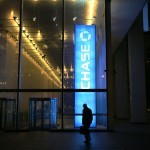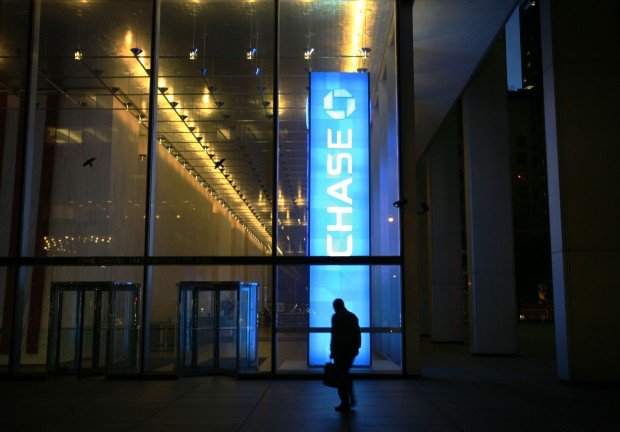U.S. prosecutors brought criminal charges on Wednesday against two former JPMorgan Chase& Co employees in the trading scandal that cost the bank $6.2 billion last year, but the trader nicknamed “the London Whale” because of the size of losses was not one of them.
Trader Bruno Iksil, who is cooperating with federal prosecutors, pushed back against the efforts of his former colleagues Javier Martin-Artajo and Julien Grout to hide the mounting losses, according to court filings.
Manhattan federal prosecutors charged Martin-Artajo and Grout, who each worked for JPMorgan’s chief investment office in London, with wire fraud and conspiracy to falsify books and records related to the trading losses.
The charges, the first to arise from a Federal Bureau of Investigation probe into the Whale scandal, say the two deliberately tried to hide hundreds of millions of dollars in losses on trades in a portfolio of synthetic credit derivatives tied to corporate debt. Such derivatives are financial instruments designed to bet on the probability of corporate default.
Manhattan U.S. Attorney Preet Bharara said the incident shows how much damage a small group of traders can do to a major bank.
Losses from the trades, which were made in the London division of JPMorgan’s chief investment office, first became public in April 2012 in a media report about the squeeze put on Iksil’s group by competitors in the market.

“This was not a tempest in a teapot, but rather a perfect storm of individual misconduct and inadequate internal controls,” said Bharara at a press conference announcing the charges. He was referring to a comment made by JPMorgan CEO Jamie Dimon, who initially dismissed the losses as a “tempest in a teapot,” a comment that would come back to haunt the man who run’s the nation’s largest bank.
It is unclear when Martin-Artajo and Grout will come to the United States to be formally arraigned. Grout, who is French and is married to an American, is living with his parents in France and Martin-Artajo, who is Spanish, lives in London with his wife and children. If the men do not agree to appear voluntarily, U.S. authorities will seek to extradite them.
“We hope they’ll do the right thing and face the charges,” Bharara said, adding the United States would pursue extradition if it was necessary.
Extraditing Martin-Artajo from either Britain or Spain should prove easier than getting Grout sent from France, which does not extradite its citizens. But if Grout decided to avoid facing charges, he would have to remain in France or risk arrest upon leaving the country.
Lawyers for Grout and Martin-Artajo have said that their clients did nothing wrong. Neither Grout’s lawyer, Edward J. M. Little, nor Martin-Artajo’s lawyers, Richard Smith and Lista Cannon, could be reached for comment after the charges were filed.
Iksil earned the nickname “the London Whale” for the size of the derivatives trades he made in late 2011 and early 2012. Though initially blamed for the bad decisions leading to the losses, the charges against his former colleagues are now casting him in a more heroic light, at least according to federal authorities.
Iksil emerges in the criminal complaints as a pivotal voice during the escalating scandal, a dissenter who wanted to quickly exit the unwieldy trading positions and who at times tried to argue against hiding the group’s mounting losses.
Down-Playing Losses
The criminal complaints include references to several conversations and email exchanges in which Iksil tells Grout he takes issue with Martin-Artajo’s instructions to minimize reported losses. In a conversation on March 16, 2012, authorities quote Iksil as telling Grout: “I don’t know where he [Martin-Artajo] wants to stop, but it’s getting idiotic.”
On March 30, according to the charging documents, Martin-Artajo asked Grout to report losses of only $200 million, even though Grout had estimated the day’s losses as being $250 million. They eventually whittled the losses down even further, to $150 million and then to $138 million, before Grout eventually filed the price report late that evening.
Just a few weeks later, in a conversation with Iksil, Grout ruminated on how to report more losses on the portfolio without igniting a firestorm among the bank’s upper managers. He appeared to want to downplay the loss amounts while keeping them realistic.
“I don’t want to show something that is too false,” Grout said.
Grout, 35, was Iksil’s deputy and was in charge of marking the values of the trades in the group’s books.
Martin-Artajo, 49, was Iksil’s direct boss in the chief investment office. Prosecutors accuse him of pressuring Iksil and Grout to report prices at more favorable levels, according to the court papers.
JPMorgan had to scramble to unwind Iksil’s derivatives positions after they came to light. The loss tainted the reputation of the bank and of Dimon, and led to calls for greater oversight. It also highlighted the scale of the bank’s risk-taking activities.
Critics said JPMorgan should not have been able to engage in such risky behavior while it engaged in commercial banking.
The complaint against Martin-Artajo said he also manipulated the single person who is not named in the complaint, whose role it was to independently review the prices of trading positions marked in the chief investment office’s books.
“The defendant and his co-conspirators took full advantage of the freedom” offered by the unnamed person’s flimsily structured office, called the “valuation control group,” the complaint said.
The complaint said Martin-Artajo and his team did this by talking to the valuation control group employee and sharing with him only selected price quotes they had received “with the result that the CIO VCG ultimately did not perform a meaningful check on the trader valuations.”
The two men each face charges of conspiracy, falsifying books and records, wire fraud, and causing false statements to be made to the U.S. Securities and Exchange Commission. They may face up to 25 years each in prison.
The maximum fines for their charges are $250,000 each, or twice the gross gain or loss from the offenses.
The U.S. Securities and Exchange Commission filed a related civil complaint against Martin-Artajo and Grout.
A spokesman for JPMorgan declined to comment.
Iksil will not face criminal charges, according to the cooperation agreement, which was signed on June 20. His testimony helped build the cases against his former colleagues; he appears in both sets of charges as “cw-1,” an unnamed cooperating witness.
Iksil was fired along with Martin-Artajo last year, as the scandal surrounding the bank’s losses escalated.





















 Allianz Built an AI Agent to Train Claims Professionals in Virtual Reality
Allianz Built an AI Agent to Train Claims Professionals in Virtual Reality  Earnings Wrap: With AI-First Mindset, ‘Sky Is the Limit’ at The Hartford
Earnings Wrap: With AI-First Mindset, ‘Sky Is the Limit’ at The Hartford  Chubb CEO Greenberg on Personal Insurance Affordability and Data Centers
Chubb CEO Greenberg on Personal Insurance Affordability and Data Centers  Beazley Agrees to Zurich’s Sweetened £8 Billion Takeover Bid
Beazley Agrees to Zurich’s Sweetened £8 Billion Takeover Bid 




